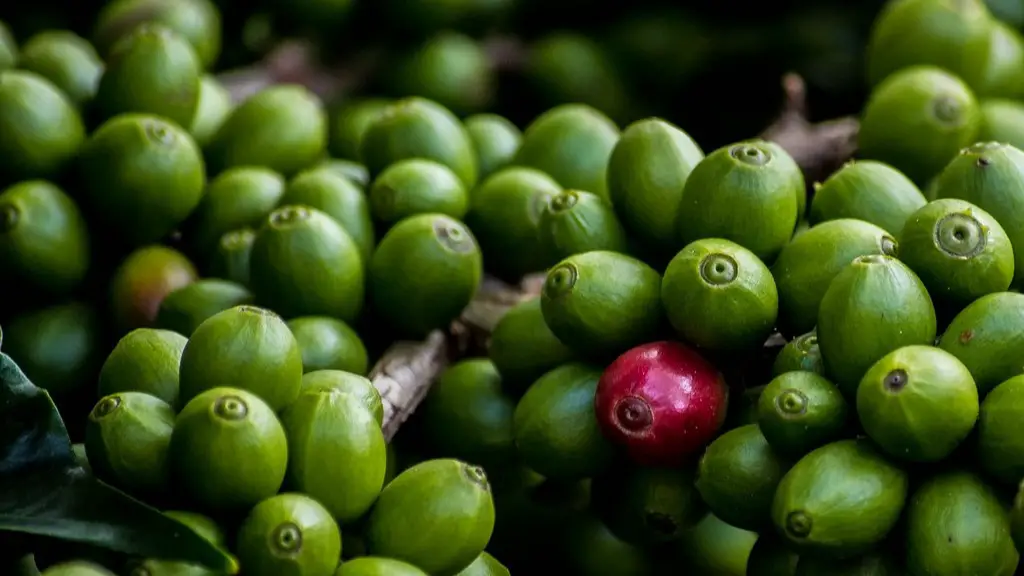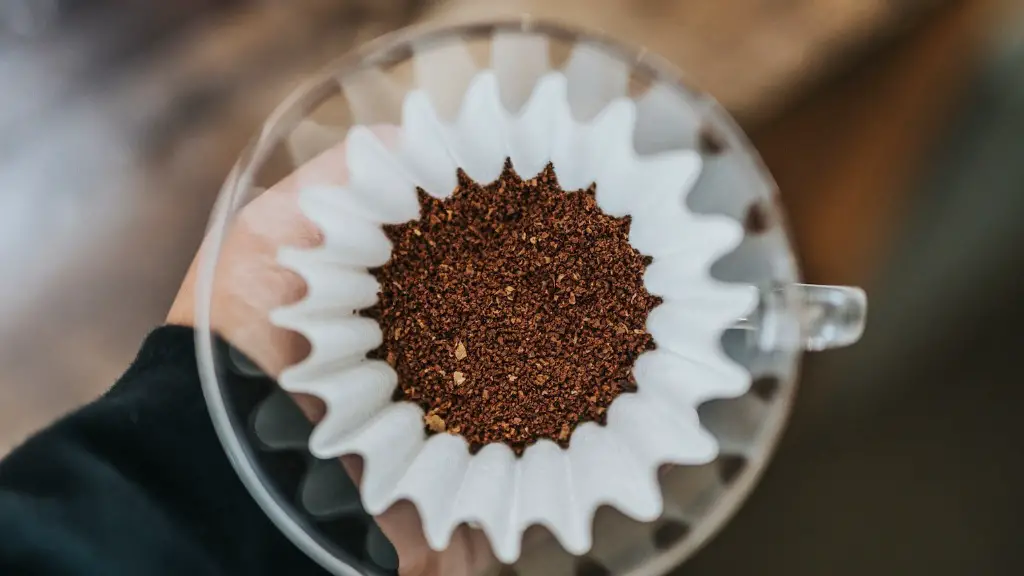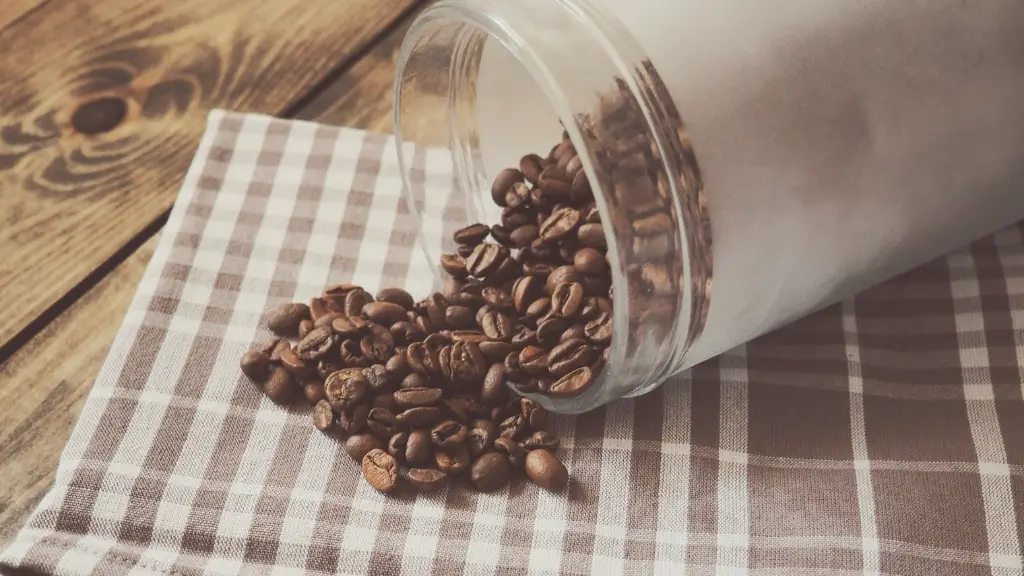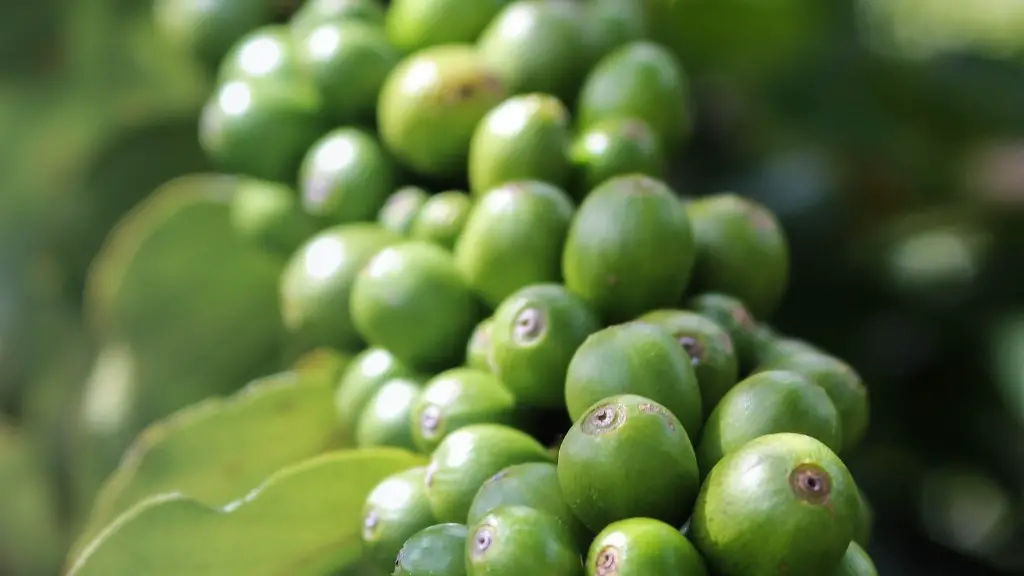Coffee is an important part of many people’s daily life. But what happens if you have a stomach ulcer and want to continue drinking it? Is it safe?
Stomach ulcers, also called gastric ulcers, are open sores that form on the lining of the stomach, small intestine, and areas of the esophagus. Many causes can lead to a stomach ulcer, such as certain bacteria, medications, stress, alcohol, and smoking.
Coffee is known to be acidic, and the acidity of coffee can easily irritate an already inflamed stomach lining. Doctors recommend that if you have a stomach ulcer, you should try to avoid any acidic food and drinks, including coffee.
However, if you cannot give up your cup of coffee, there are some ways for you to reduce the risk of the stomach ulcer being aggravated by the acidity of the coffee. The first is to dilute the coffee with some added in water. This helps to reduce the intensity of the acidity and can make the coffee easier on the stomach.
You can also try reducing the coffee strength by using less ground coffee in the coffee bean to water ratio. This also helps reduce the acidity of coffee. You can also try one of the alternative coffee options such as decaff coffee or try adding a bit of milk to help reduce the acidity of the coffee.
It is important to note that if you’re suffering from stomach ulcers, the best thing for you to do is to seek medical attention and follow the advice provided by your doctor. Your doctor will be able to advise you on how to best manage your stomach ulcer and will be able to recommend a suitable diet and course of treatment.
Diet for Stomach Ulcer Patients
The most important thing for stomach ulcer patients to consider is their diet. Eating meals which are easy to digest and contain plenty of fruits, vegetables and carbohydrates can help ease the symptoms of an ulcer. Avoiding spicy and acidic foods is essential, and it is best to try and limit or eliminate alcohol, tobacco and caffeine.
Eating little and often can also help to reduce bloating and other stomach discomfort associated with ulcers. Eating plenty of fibre-rich foods such as oatmeal, beans, and fruits can also be beneficial in relieving symptoms of an ulcer.
It is important to note that everyone is different and some people may be able to tolerate certain foods or drinks better than others. Keeping a food diary and noting any changes in symptoms can help you to identify which foods and drinks may be triggering the ulcer.
Alternative Treatments for Stomach Ulcer
In addition to diet and lifestyle changes, there are also several alternative treatments which can be beneficial for stomach ulcer patients. Herbal remedies such as chamomile, licorice root, and slippery elm can help to reduce inflammation of the stomach lining.
In addition, probiotics such as yogurt can help to strengthen the digestive system and reduce inflammation. Acupuncture and traditional Chinese medicine are also popular alternatives for treating stomach ulcers and can help to promote healing and reduce symptoms.
It is important to note that even with alternative treatments, it is important to seek medical advice before taking any herbal remedies or supplements as there may be side effects or interactions with other medications.
Complications of Stomach Ulcer
If left untreated, a stomach ulcer can lead to various complications including bleeding, perforation, obstruction, and even cancer. In severe cases, complications such as bleeding can be life-threatening and it is important to seek medical attention immediately if any of these symptoms are experienced.
Perforations can also occur in severe cases of stomach ulcer which lead to the stomach contents leaking into the abdomen which can lead to infection. Obstruction is another complication which occurs when the stomach ulcer blocks the flow of food into the small intestine. This can cause the patient to experience nausea, vomiting, abdominal pain, and bloating.
The risk of developing cancer increases when a patient has a stomach ulcer, as many of the same factors that cause ulcers can also be carcinogenic over time. Therefore, if a patient with a stomach ulcer experiences any significant changes in symptoms or an increase in pain, it is important to seek medical attention as soon as possible in order to rule out any serious complications.
Knives, Forks and Spoons – Eating Utensil Guidelines
Having the right utensils when it comes to eating your meals can make all the difference in preventing a stomach ulcer from worsening. Eating with the wrong utensils can actually cause the ulcer to become worse and cause a great deal of pain.
The best utensils to use while eating when you have a stomach ulcer are forks, knives, and spoons. Avoid using sharp knives when preparing your food as they can cause further irritation. Instead, opt for using a dull knife. Spoons are also a good option as they can help to scoop up food without the added stabbing motion associated with a fork.
Avoid using chopsticks as they can be too pointy and can cause irritation to an already inflamed stomach. Additionally, it is important to ensure that the utensils you’re using are made of materials that will not scratch or irritate the stomach lining, such as ceramic or plastic.
Self-Buttering Toast
One of the most popular folk remedies for curing a stomach ulcer is to eat toast with butter. This has been claimed to provide pain relief from ulcer symptoms. The claim is that the butter helps to lubricate and soothe the inflamed stomach lining. However, some experts warn that fatty, greasy foods may actually worsen a stomach ulcer due to its acidity. Therefore, it’s best to be cautious and proceed with caution when considering this home remedy.
In addition, it is important to note that while this traditional remedy may provide temporary relief, it is essential to seek out medical advice in order to address the underlying cause of the ulcer and to prevent further complications.
Final Thoughts
When it comes to drinking coffee while suffering from a stomach ulcer, it is important to proceed with caution. While it may be possible to reduce the risk of irritation by diluting the coffee, drinking it in moderation, or trying an alternative such as decaff, it is best to consult a doctor and make sure that you’re following a suitable diet which won’t aggravate the ulcer.
In addition to diet, lifestyle changes and alternative treatments must also be considered in order to fully address the underlying cause and prevent any further complications. Keeping track of any changes in symptoms can help you to identify which foods and drinks may be exacerbating the ulcer and should be avoided.
It is important to note that everyone’s experience with a stomach ulcer is different, and that seeking medical attention can help to provide the best way to manage and reduce the symptoms.





